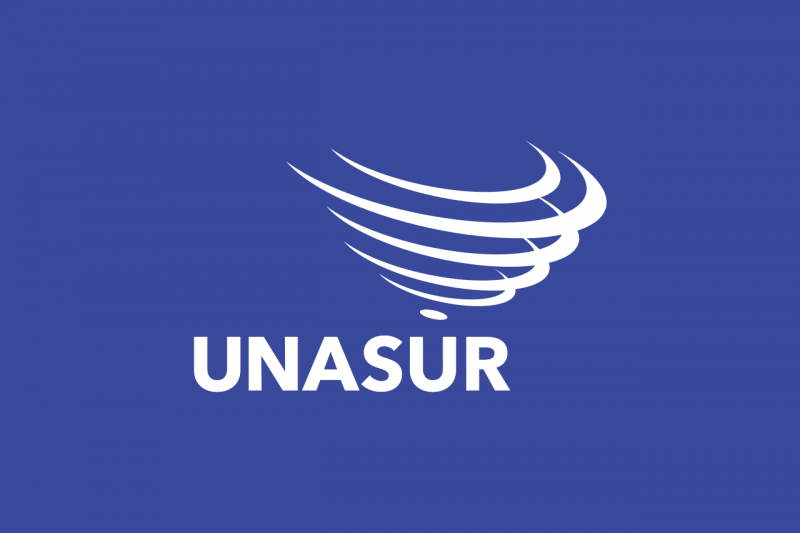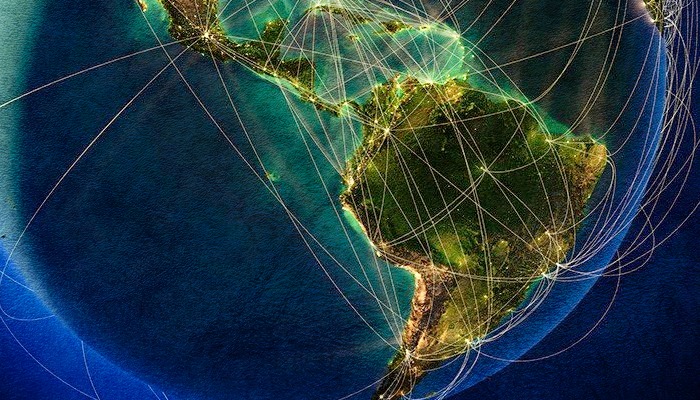October 12 is a day of celebration in Spain and throughout Latin America. It is the national day of Spain and Hispanic Americans, marking the arrival of Christopher Columbus in America in 1492.
In the first part of this article, I discussed how the balkanization process of Ibero-America was carried out and the wealth and potential this region of South America possesses. Hispanic-America and Ibero-America had been integrated and cohesive in a political, cultural, religious and economic way, so much so that the vast territory became extremely prosperous. The Kingdom of Spain in America, as mentioned in part one, created more than 20 universities and developed a civilization unlike the colonies of the United Kingdom, France or Holland. Ibero-America was never plagued with famine-like the rest of Europe was, making it a preferred destination for many immigrants.
After the “revolutions” of the nineteenth century in America, the idea of forming a single macro-Pan-American State was drafted by military leaders such as San Martín and Simon Bolívar. However, private, foreign, regional and local interests were organized such that the entire territory eventually ended up balkanizing as a result of their efforts. However, the idea of a unification of the territories that formed part of Spain in America has proven to be anything but a fleeting idea, and has come up again and again in different periods throughout history.
Since the end of the 19th century and the beginning of the 20th, efforts have been made to create a joint holiday celebrated by Spain and the various countries of Hispanic heritage. A general Hispanic heritage day began to be celebrated throughout the region, although the terms of what the holiday represents are hotly contested. The idea of revitalizing a common Ibero-American union and promoting it as a counterbalance to English incursion into the continent has led to the emergence of various unifying proposals.

Flickr
The idea of reunification
One of the most prominent figures to have promoted the idea of a unified Ibero-American formation was Manuel Ugarte. Ugarte was an Argentinian who initially identified with socialism but eventually broke with it because, in his own words, the ideology had lost its sense of love and respect for the country. Ugarte established the concept of “La Patria Grande”, as his book was titled, a term that spread throughout the region in the twentieth century and especially at the beginning of the twenty-first century.
The Patria Grande is a geopolitical concept which stresses the unity of countries with Spanish heritage, promoting the idea that these countries have a common origin and destiny and must unite to realize it. This idea influenced numerous Hispanic intellectuals and politicians during the first half of the 21st century and was adopted in 1946 by the government of Juan Domingo Perón.
After 2000, the South American left adopted Ugarte’s idea of the political and strategic unification of the South American Continent under the leadership of Hugo Chavez, Fidel Castro, Néstor Kirchner, Evo Morales, Correa, etc. This reuse of the term “Patria Grande”, although taking some essential elements of Ugarte’s work, had a more Europhobic and especially anti-Spanish orientation. The beginning of a revitalization of the idea of a unified Ibero-America was experienced but with a stress on indigenous people, adopting an air of resentment toward European culture in general. For instance, “Hispanic Day”, the day celebrating Columbus’ discovery of America, was modified, and became things like the “Day of Respect for Cultural Diversity ”, in Venezuela it became“ Day of indigenous resistance ”, in Bolivia the “ Day of decolonization ”, in Ecuador the “ Day of interculturality and Plurinationality ”, etc.
The ideological bias of the left was deeply rooted in works such as “the Socialist States of Latin America” , so much so that they achieved precisely the opposite effect from the one they intended, increasing animosity between the countries they had hoped to unite. The economic crises that were caused by high rates of corruption and the populist policies of the left led to the majority of these governments losing elections and generating resentment among those countries that refused to accept their twisted vision of history.
However, the governments of the Latin American Left did form the UNASUR (Union of South American Nations), a South American integrating body whose objective is “to build a South American identity and citizenship and develop an integrated regional space.” UNASUR represented an important advance in integration policies and achieved remarkable Foreign Policy coordination. It came to be represented by the 12 independent countries on the continent, representing almost 70% of the population of Ibero-America (about 400 million inhabitants).

Wikimedia Commons
At UNASUR, various government bodies similar to the European Union, a physical headquarters and numerous strategies for integration and development were established. For example, the idea of creating a single South American currency to economically integrate the entire continent was avidly discussed. The organization sought to promote and develop industry and technology, establish exclusive economic zones and strengthen the human development of member countries.
The problem was that it attempted to do so in a very politicized way and with limited transparency. The leadership put its ideological interests ahead of strategic ones. An idea that could have been promising ended up being a failure due to its phobia of everything European and Spanish. The appropriation of the idea of unification by the left politicized the concept to the point that those with other political positions ended up rejecting it, eventually suspending their membership in UNASUR.
The truth is that those who have consistently proposed a return to political and economic unity are on the conservative and traditionalist spectrum (something abhorred by the left). These political groups are looking toward a broader idea, favoring a regional union over individual ideologies. At the same time, they are defending the cultural bases that gave form and origin to their identity.
The Current situation
The current situation in Ibero-America is far from promising given the strong presence of foreign powers such as the United States, China and the United Kingdom. The United States has important economic interests in the region and, even more importantly, military bases in countries such as Panama, Mexico, Honduras, Puerto Rico, Paraguay, Colombia and Peru. They excuse their presence by claiming it is part of the fight against drug trafficking, organized crime and terrorism. These bases give Washington a critical strategic presence which allows them to apply pressure throughout the region.
Another important actor is China, the Asian giant that is making inroads into Ibero-American countries economically, becoming the largest extra-regional investor and socio-commercial in many of them. The Chinese government undoubtedly provides these countries with a host of benefits, but it also makes economic demands such as the purchase of companies or vital territories in order to benefit its own economy. China also makes strategic demands such as the establishment of a “scientific” and “space” research base in Argentine Patagonia.
Finally, the United Kingdom, which, despite losing its status as a world Empire, still has political, economic and territorial influence in the region. An example is the territorial control of areas where their colonial footprint (the Cayman Islands, the Turks and Caicos Islands, the Virgin Islands, Anguilla, Montserrat, etc.) as well as the Falklands, the Pitcairn Islands, Saint Helena, Ascensión & Tristán de Acuña and Antarctica; all together, these smaller holding still grant the UK an important presence in Latin America.
Conclusions
The wealth of Ibero-America is enormous, as is clear based on foreign interest in the region. While Latin American countries are predominantly made up of weak states trapped in cycles of successive economic and social crises, they also represent opportunities to increase and strengthen foreign powers’ influence throughout the region. The political debate at the regional level is limited to the struggle between liberal and leftist ideologies, ignoring the historical, traditional and strategic spectrum of the entire region.
The pseudo unifying idea of the left was ultimately defeated by believing the lies spread by the enemies of Spain, including fables of abuse, genocide and the sadistic exploitation of the natives of the continent. These stories obstructed any possibility of true integration by alienating anyone who was politically opposed to this historical ideology.
On a geopolitical scale, the world is moving towards multipolar, wherein large geographic areas form continental blocks to coordinate common policies. Given this political shift, Ibero-America must move towards a true alliance and strategic unification if it intends to survive and thwart the efforts of foreign powers to control and subjugate the continent.

















Leave a Reply